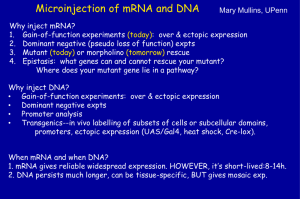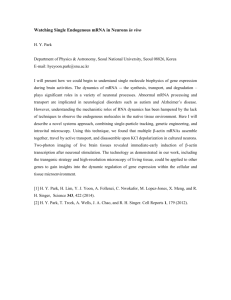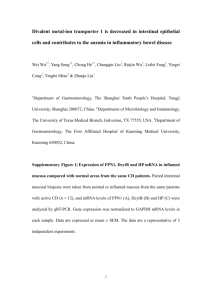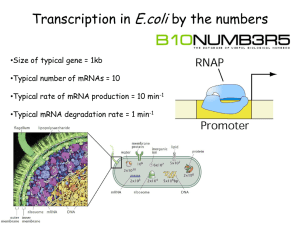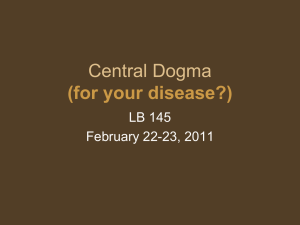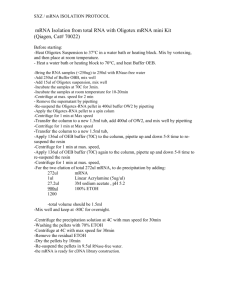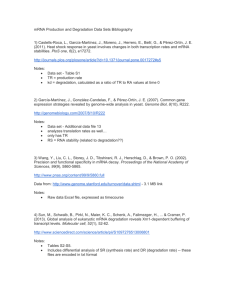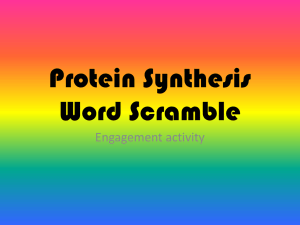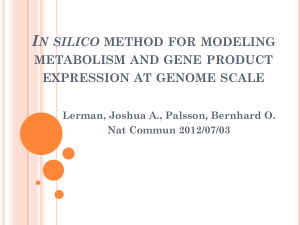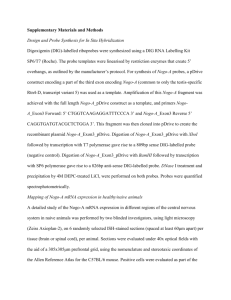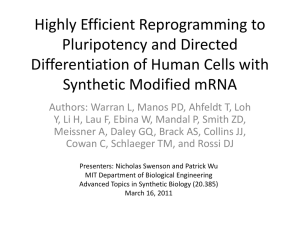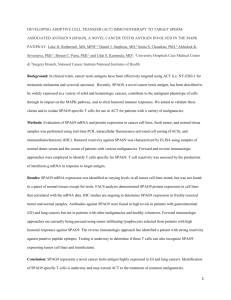Morpholino Injections
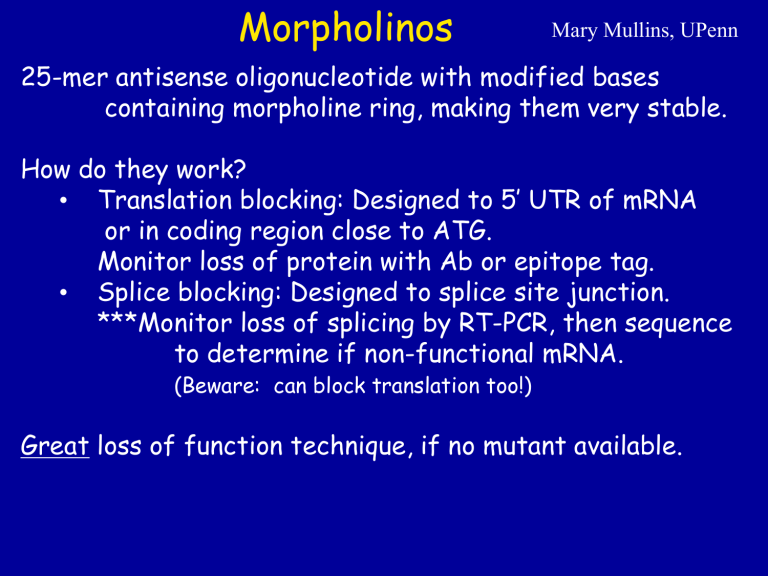
Morpholinos
Mary Mullins, UPenn
25-mer antisense oligonucleotide with modified bases containing morpholine ring, making them very stable.
How do they work?
• Translation blocking: Designed to 5’ UTR of mRNA or in coding region close to ATG.
Monitor loss of protein with Ab or epitope tag.
• Splice blocking: Designed to splice site junction.
***Monitor loss of splicing by RT-PCR, then sequence to determine if non-functional mRNA.
(Beware: can block translation too!)
Great loss of function technique, if no mutant available.
The Problems: controls are needed
Control for specificity of knock down
• Rescue with mRNA NOT containing MO site.
Do double injection: 1st MO, 2nd mRNA.
• Second MO, non-overlapping with first, produces same phenotype.
• 5 bp mismatch MO--expect no effect.
• Control MO suggested by Gene Tools NOT a control.
Nonspecific effect: delay in development.
Age-matched controls not appropriate. Need to developmentally stage controls to morphants (stage-matched).
Nonspecific effect: widespread cell death. >4 ng/embryo, but depends on the particular MO.
See also Eisen and Smith, Development, 2008.
Combined specific and non-specific MO effects
Cell death assay uninjected
WT
+ 8ng tsg MO
+ 8ng MO
+ 96 pg tsg mRNA
Reduced head size is non-specific tsg MO defect.
Note extensive cell death, BUT mild head reduction.
Vein edema is specific tsg MO defect.
Use p53 mutant or p53 MO to block cell death.
Little and Mullins, 2004
Crosses —separate male from female in divided mating box, put together at various times in morning so can inject one-cell stage embryos throughout the morning.
Titrating MO or mRNA —determining the right concentration
Combine two different MOs targeted to same mRNA to reduce off-target effects.
Today
MOs smad5
smad5 mismatch bmp7
bmp7 mismatch mRNA for rescue of MO mouse smad5
Xenopus bmp7
MOs can be flourescently tagged, so can assess where injected/located. More expensive than non-tagged.
James will demonstrate calibration of needle this morning.
After calibrating needle,
Then start MO injections
Also…….
check injected embryos from yesterday:
Overexpression chordin, bmp4
Rescue of somitabun (smad5 mutant)
